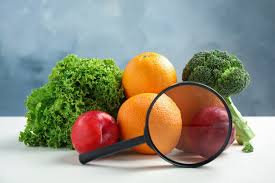
Diet plays a significant role in cancer prevention and management. While it's important to note that diet alone cannot guarantee the prevention or cure of cancer, a healthy diet can help reduce the risk of developing cancer and improve the overall well-being of cancer patients. Here are some key points to consider regarding diet and cancer:
1. Antioxidants: Foods rich in antioxidants, such as fruits and vegetables, can help protect cells from damage caused by free radicals. Free radical damage is associated with an increased risk of cancer.
2. Fiber: High-fiber foods like whole grains, legumes, fruits, and vegetables can help reduce the risk of colorectal cancer. Fiber aids in digestion and helps maintain a healthy gut, which is crucial for overall health.
3. Limit Processed and Red Meat: Consumption of processed meats (like bacon, sausages, and hot dogs) and excessive red meat has been linked to an increased risk of certain cancers, especially colorectal cancer. It's advisable to limit these foods.
4. Healthy Fats: Choose healthy fats like those found in olive oil, avocados, and nuts over saturated and trans fats, which are often found in fried and processed foods. A diet high in unhealthy fats may increase the risk of certain cancers.
5. Limit Sugar and Refined Carbohydrates: High sugar intake and diets high in refined carbohydrates have been associated with an increased risk of obesity and some types of cancer. Reducing sugar and opting for whole grains is beneficial.
6. Alcohol: Excessive alcohol consumption is linked to an increased risk of several types of cancer, including breast, liver, and mouth cancer. If you choose to drink alcohol, do so in moderation.
7. Portion Control: Maintaining a healthy weight through portion control and calorie moderation is crucial for cancer prevention. Obesity is a risk factor for several types of cancer.
8. Hydration: Staying hydrated with water is essential for overall health. Drinking plenty of water helps with digestion and detoxification, which can indirectly contribute to cancer prevention.
9. Specific Nutrients: Certain nutrients like folate, calcium, and vitamin D have been associated with a reduced risk of certain cancers. Ensure your diet includes foods rich in these nutrients or consider supplements if needed, under medical guidance.
10. Customized Diet Plans: For cancer patients, the nutritional needs may vary depending on the type of cancer, treatment, and individual health status. Consult with a registered dietitian or nutritionist who specializes in oncology to create a personalized diet plan.
It's important to remember that while diet can play a role in cancer prevention and treatment, it should be part of a broader healthy lifestyle that includes regular physical activity, not smoking, and limiting exposure to carcinogens. Additionally, if you have been diagnosed with cancer or are at high risk, it's crucial to work closely with your healthcare team to develop a comprehensive plan that includes appropriate medical treatments and dietary considerations.
- 2023-09-09T06:57:52








